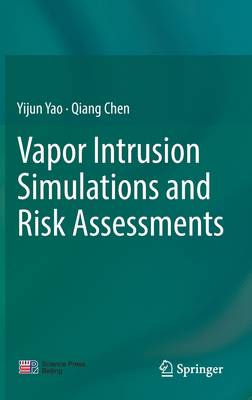
- Retrait gratuit dans votre magasin Club
- 7.000.000 titres dans notre catalogue
- Payer en toute sécurité
- Toujours un magasin près de chez vous
- Retrait gratuit dans votre magasin Club
- 7.000.0000 titres dans notre catalogue
- Payer en toute sécurité
- Toujours un magasin près de chez vous
Description
This book introduces key concepts in modeling and risk assessments of vapor intrusion, a process by which the subsurface volatile contaminants migrate into the building of concern. Soil vapor intrusion is the major exposure pathway for building occupants to chemicals from the subsurface, and its risk assessments determine the criteria of volatile contaminants in soil/groundwater in brownfield redevelopment. The chapters feature the recent advances in vapor intrusion studies and practices, including analytical and numerical modeling of vapor intrusion, statistical findings of United States Environmental Protection Agency's Vapor Intrusion Database and Petroleum Vapor Intrusion Databases, the challenges of preferential pathways, and the application of building pressure cycling methods, and field practices of vapor intrusion risk assessments at developed contaminated sites and in brownfield redevelopment. This volume also summarizes the advantages and limits of current applications invapor intrusion risk assessment, laying the groundwork for future research of better understanding in risk characterization of soil vapor intrusion using models.
Written by experts in this field, Vapor Intrusion Simulations and Risk Assessments will serve as an invaluable reference for researchers, regulators, and practitioners, who are interested in perceiving the basic knowledge and current advances in risk assessments of soil vapor intrusion.
Spécifications
Parties prenantes
- Auteur(s) :
- Editeur:
Contenu
- Nombre de pages :
- 128
- Langue:
- Anglais
Caractéristiques
- EAN:
- 9789811926990
- Date de parution :
- 26-07-22
- Format:
- Livre relié
- Format numérique:
- Genaaid
- Dimensions :
- 156 mm x 234 mm
- Poids :
- 376 g

Les avis
Nous publions uniquement les avis qui respectent les conditions requises. Consultez nos conditions pour les avis.






